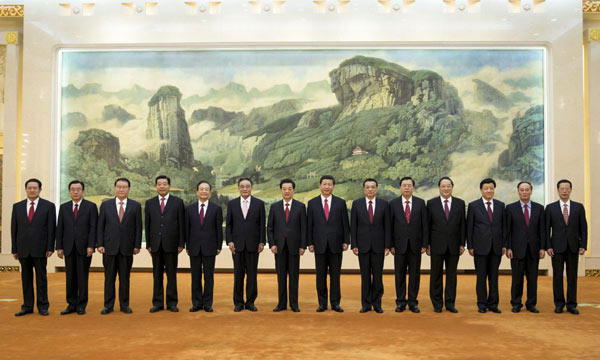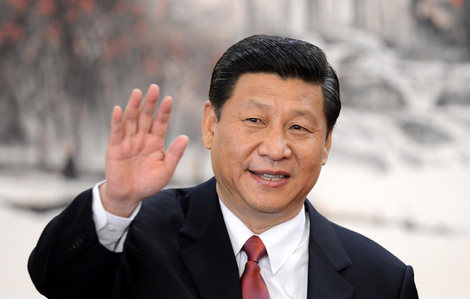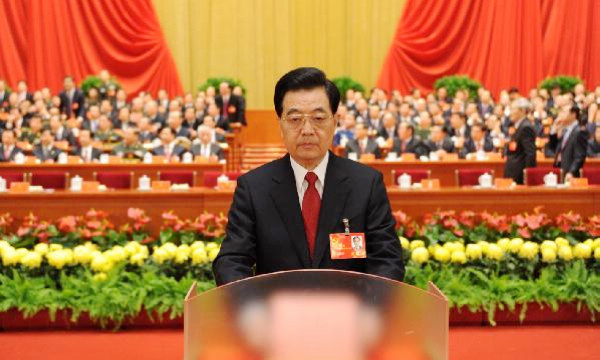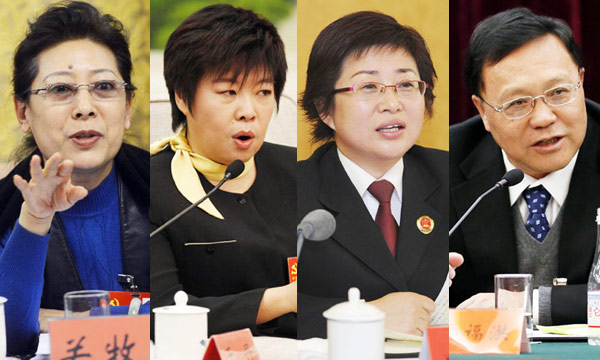Website gives an insider's view of Party gathering
By Wu Jiao (China Daily)
Updated: 2012-11-15 03:59
While his fellow delegates were busy unpacking their luggage or chatting upon arriving in the capital for the twice-a-decade, all-important Party congress, the first thing Shu Bin did was to take a picture with his cellphone and post it on his micro blog.
Shu has had a hectic week at the 18th National Congress of the Communist Party of China. Aside from attending to his duties as a delegate, he was busy covering the congress news and sharing it with his millions of readers in micro blog posts, not to mention being interviewed by virtually every influential media source in China.
Shu, 44, is head of the popular Hunan province news portal rednet.cn, which is known for its bold coverage of social problems. He was one of two delegates from online media at the congress.
The other was Liao Hong, boss of people.com.cn, the website of the Party's flagship newspaper, People's Daily — the website just got listed on the Shanghai Stock Exchange.
Shu's participation is an indication of how deeply embedded the Internet has become in political life in the Party and country. It is a sign of the Party's recognition of the importance of this communication channel.
Shu left his job as a government publicity official and set up Rednet in 2000, the year the Internet began catching on with the Chinese public. Since then, he has witnessed firsthand the Web's transformation in China, the world's most populous nation, into an influential medium with 538 million users.
Over the past 10 years, the public has sought help from Shu's website in handling about 100,000 complaints.
He proudly told China Daily that they succeeded in resolving 80 percent of those complaints, earning Rednet a strong public reputation and making it famous among its counterparts.
"It's easy now," Shu said.
At first, almost no government agencies cared about the complaints Rednet brought from the public. But they gradually changed their minds, and they now take prompt action.
Shu said that the website treats the different parties in these issues equally, and that this equality is one of the main reasons behind the popularity of the Internet.
The Internet has significantly changed the information flow in China.
"Traditional media operate mainly as 'we speak, you listen', but the Internet promotes interaction," he said.
The Web is complementary to the current political system, Shu said, adding that he hopes that the equality in communication between the public and the government in the cyberworld will one day be the norm in real life.
"We (the website) can never be the government, the judges. We are the bridge between the public and the government agencies, and the facilitator in the exchange of information," he said.
But the Internet is one of the motors driving China's socialist democracy and communication, according to Shu.
His job was to keep information flowing, and at the congress, his reporting was done "for every 'you' behind the computer screen", he said.
While Shu attended the congress in person, millions of people in China are following the proceedings online and discussing the hot topics.
Internet communication has broadened the channels of socialist democracy, analysts said, but they also warn that it has brought new challenges to the Party and will change many aspects of governance.
The Party wrote in its political report for the congress that it will build a modern communication system and improve the Internet in China.
This shows the Party is well aware of how important the Internet is in social and political life, and that it is taking action to advance the trend, Shu said.
The media of the Internet age, online platforms, micro blogs and cellphone instant messaging, are playing an increasingly important role in society and politics.
Many government agencies and officials are now using micro blogs to communicate directly with the public.
Li Liangrong, a professor of journalism and communications at Fudan University, said that by recognizing the role of the Internet and paying attention to its development, the country is making great strides in ensuring the public's access to information and freedom of speech on the Internet.
But the government also has to rein in the rumors and other negative aspects of the Internet, a concern in many countries in the Internet age, Li said.
Contact the writer at wujiao@chinadaily.com.cn
Related Stories
More delegates use micro blogs to interact with public 2012-11-12 11:26
Micro blogs prove effective tools for government to inform the public 2012-11-01 07:56
Psy opens Sina Weibo account 2012-11-13 15:41
Sina Weibo launches new charity platform 2012-11-12 17:18
Sina poised to launch new Weibo version as ads soar 2012-08-17 07:36
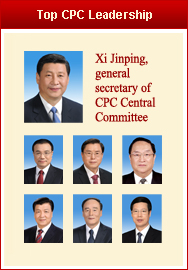
Top News
Xi emphasizes adherence to CPC Congress spirit
Top legislator urges implementation of congress spirit
Moderately prosperous China brings chances to world
Video


